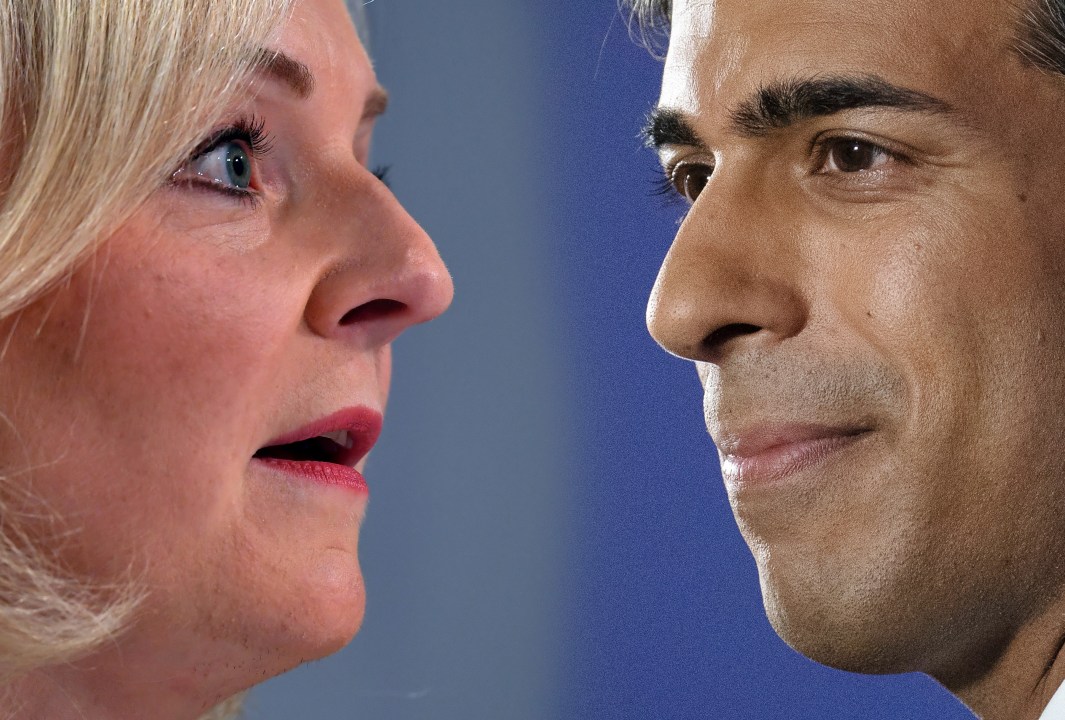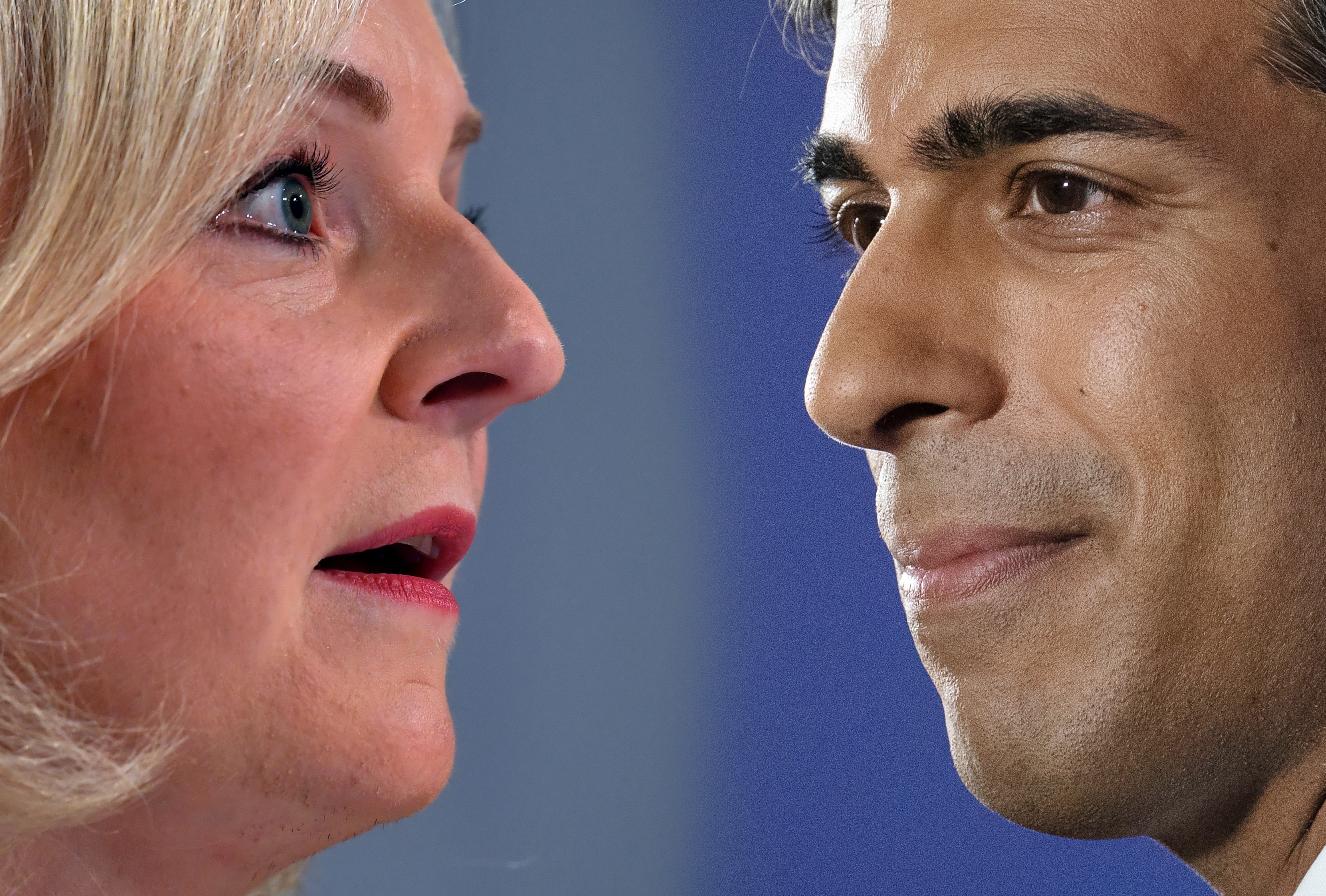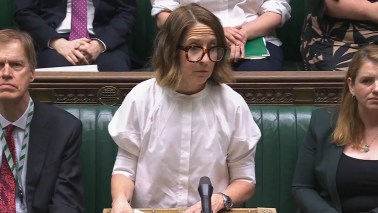Rishi Sunak has joined Liz Truss in grumbling about solar panels in fields. This is all rather dismaying, and revealing. It suggests that Conservative leadership contenders – and the party faithful they’re appealing to – lack faith in the transformative power of markets and free enterprise.
Those solar panels that Sunak and Truss deplore are nothing less than an economic miracle, delivered by private companies seeking profit. Anyone who proclaims themselves supporters of markets should be shouting from the rooftops about this miracle, since it shows how people and organisations freely allocating capital makes our world better, fast.
Private enterprise works because the incentive to make a profit by selling stuff spurs people and organisations to make or provide that stuff better and/cheaper. They can sell that better/cheaper stuff for higher prices and/or in greater volumes, and thus get more money for themselves. This leads people and organisations to specialise and innovate, eternally seeking to make their stuff even better and/or even cheaper, to preserve/increase their sales.
Many of the transformational improvements delivered by private enterprise are very visible and tangible: chances are, you’re reading this on a smartphone, a product that’s barely 15 years old (the first iPhone was sold in June 2007) and was the stuff of sci-fi a generation back. It is the genius of private enterprise that rendered the countless components of a smartphone small enough, reliable enough and cheap enough to be combined into the computer-camera-television-communication hub we still call a ‘phone’.
But while everyone knows about miracles of innovation like the smartphone, a lot of people – especially at Westminster – seem to have missed comparable marvels taking place over renewable energy. The last decade or so has seen a stunning fall in the cost of extracting energy from wind, wave and sun – because the companies making the kit to do that and the companies selling the energy thus generated have repeatedly made their stuff better and cheaper.
The last decade or so has seen a stunning fall in the cost of extracting energy from wind, wave and sun
When British politicians, especially on the right, debate renewable energy, they routinely overlook the fact that renewable energy is now, by and large, cheaper than either fossil fuel or nuclear power. (And yes, that’s without subsidy: see Lazard’s figures for ‘levelised’ costs here. And they’re from before the Ukraine spike in gas prices)
And as I wrote here last year, solar has led this charge. Those Lazard figures suggest that in the ten years to 2020, the cost of solar energy fell by almost 90%.
Max Roser at Our World in Data has calculated that the stunning falls in the cost of solar generation make solar the world’s cheapest source of energy today.
This is one reason why the cabinet of which both Sunak and Truss were members signed off an energy security plan seeking a five-fold increase in UK solar capacity by 2035. But it’s the reason for solar getting cheaper that should really interest Tories.
That reason, in Roser’s phrase, is a ‘virtuous cycle of increasing demand and falling prices’. As people, encouraged by government policies in some cases, have bought more solar energy, the solar industry has had an incentive to make its stuff better/cheaper so it can sell more of it. That innovation allows industry to generate solar power even more cheaply, making it more attractive to customers, who buy more of it.
In other words, the market has worked its magic. People and organisations allocating their own capital and efforts have made something useful into something that’s also cheap.
And ‘useful’ is an understatement for solar power. The 15 gigawatts of power the UK can generate from the sun is energy we don’t need to get from other sources. More panels means less reliance on expensive fossil fuels. There is a problem with solar panels in fields: there aren’t enough of them.
For context here, solar panels cover less than 0.1 per cent of U.K. land. Golf courses cover 2 per cent. A country where those two numbers matched would be a better place.
And yes those extra panels might be in fields – as a result of private decisions made by people in markets. Farmers are running businesses, remember: they don’t host solar panels for fun, they do it for money. And this again makes the Tory contenders’ enthusiasm to meddle surprising. Why do Conservatives think they should be telling agricultural businesses how to use their own resources and find revenue? It seems unlikely that they would ever tell the owners and operators of golf courses to use their resources in another way.
It’s also hard to reconcile Tory solar-bashing with years of encouragement to farmers to diversify their incomes – encouragement from governments that included Truss (a former agriculture secretary) and Sunak.
The solar panels in British fields are there because markets work and because people in markets make smart decisions that are good for them and good for others. That’s a story you might expect potential Conservative leaders to keen to tell.
That Truss and Sunak have chosen to tell a very different story says a lot about Conservative thinking on markets.








Comments